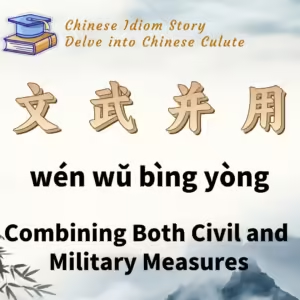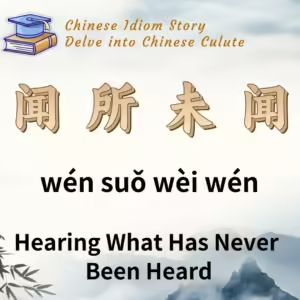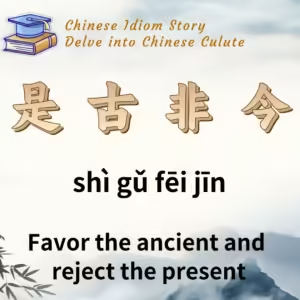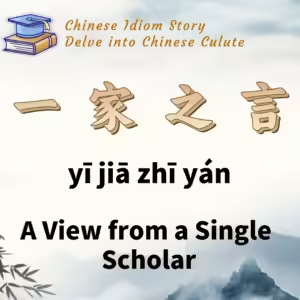
Chinese Idiom: 文武并用 (Wen Wu Bing Yong)
English Translation: Combining Both Civil and Military Measures
pīn yīn: wén wǔ bìng yòng
Idiom Meaning: This idiom signifies the importance of balancing both intellectual (civil) and martial (military) capabilities for effective governance and long-term stability. It reflects the idea that both cultural achievements and military strength are essential for a well-rounded and successful administration.
Historical Source: Records of the Grand Historian (《史记·郦生陆贾列传》)
Idiom Story
陆贾 (Lu Jia) was a renowned diplomat and adviser during the early Han Dynasty, known for his contributions to consolidating the Han Empire. After the Han Dynasty was established, Lu Jia was instrumental in persuading the ruler of Nanyue (Southern Yue) to submit to Han authority. He also played a crucial role in advising and consolidating power during internal conflicts.
During the early Han Dynasty, Lu Jia frequently advocated for the principle of “文武并用” (combining both civil and military efforts) to ensure long-lasting stability. He argued that while military strength was essential for achieving and expanding power, maintaining and consolidating power required a focus on cultural and intellectual achievements.
In a conversation with Emperor Gaozu of Han, Lu Jia argued that historical figures who relied solely on military might, such as King Fu Chai of Wu and the powerful statesman Zhi Bo, eventually faced downfall because they neglected the importance of cultural and moral governance. He also noted the downfall of the Qin Dynasty, which, despite its military conquests, failed due to harsh laws and lack of moral governance.
Lu Jia’s wisdom and recommendations highlighted that for a ruler to maintain long-term stability, they must balance military prowess with effective and benevolent governance. His advice significantly impacted the Han Dynasty’s approach to ruling, blending both military and civil strategies to achieve enduring success.
In recognition of Lu Jia’s insights, Emperor Gaozu valued his contributions and praised his works, which were later compiled into the influential “新语” (New Words), reflecting his profound understanding of statecraft.






